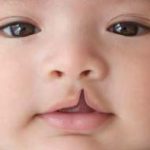What is chin surgery?
Chin surgery, or mentoplasty, is a surgical procedure to reshape the chin either by enhancement with an implant or reduction surgery on the bone.
Plastic surgery, and other minor office procedures, can often be performed on the lower jaw line and chin area to improve proportions of the face and to help with one’s confidence and self-esteem. These types of interventions are frequently suggested by board-certified plastic surgeons to improve the harmony of facial features and improve the chin/jaw/cheek/forehead balance.
Sometimes bone from the jaw itself can be moved forward in an operation called a mentoplasty or genioplasty. Alternatively, shaped silicone implants can be used to give more projection to the chin. Conversely, bone can be removed to decrease an overly projecting chin. Furthermore, modifications to the upper and/or lower jaw can be advised for improved chewing dynamics and occlusion – or how the teeth fit together. These operations can range from simple to very complex.
Many times, a plastic surgeon may recommend chin surgery or procedures to a patient having a rhinoplasty in order to achieve better facial proportions, as the size of the chin may magnify or minimize the perceived size of the nose.
Additionally, with recent advances in technology, and after obtaining informed consent after reviewing all options, risks and benefits, your plastic surgeon may suggest off-label use of FDA-approved gel filler material as an alternative for providing augmentation of the chin area that may last for a shorter duration.
Types of chin surgeries
Surgery can be performed on the chin to alter or improve its appearance. The two main types of chin surgery are either chin augmentation or chin reduction.
Chin augmentation/implants
Chin augmentation surgery is usually performed to augment an under projected chin. Typically, this is accomplished by placement of an implant directly on the bone. A small incision is made either inside the mouth or underneath the skin of the chin. After the implant is placed, the incision is then closed with sutures. Mild swelling may occur for a few days, and patients usually are able to return to work within a week.
Chin reduction surgery
Chin reduction surgery, or chin shaving surgery, is performed to reduce a prominent or over projected chin. The surgery is typically performed under general anesthesia as an outpatient procedure. A small incision is made either inside the mouth or underneath the skin of the chin. Excess bone is removed, and the chin is contoured to the desired shape. The incision is closed with sutures.
Is Chin Surgery (Genioplasty) Right for You?
Chin surgery/genioplasty corrects receding chins, chin misalignment or chin excess. If you are concerned with the position, shape or contour of your chin, chin surgery may be a good option for you to consider.
Genioplasty is a commonly performed plastic surgery procedure.
BestCandidates
Genioplasty is best for patients who are otherwise in good health, without active diseases or serious, pre-existing medical conditions.
Genioplasty can be effective for patients with a small or receding chin. A chin that seems too small in proportion to other facial features can make the nose appear overly long. Plastic surgeons frequently use chin implants to balance the features of a younger patient or may use genioplasty in conjunction with another cosmetic procedure in a more mature patient.
If you’re interested in chin surgery/genioplasty, we’ll first have you come for a personal consultation with your plastic surgeon. You will have the opportunity to discuss your goals and the results you’d like to achieve. Your surgeon will work with you to reach an understanding about what you can expect from this procedure and the long-term benefits. Every patient is different, and your surgeon will choose the surgical technique and treatment plan that is right for you. During your initial consultation, you should expect to:
- Provide a complete medical history. Include information about any previous surgical procedures; past and present medical conditions; and all medications or herbal supplements you are taking.
- Have your surgeon conduct a complete examination of your face, including the skin and underlying bone.
- Discuss possible risks and complications.
- An X-ray may be necessary to determine the proper procedure for you.
Surgery
Preparing for Your Surgery
After your consultation and decisions about surgery, we will give you pre-operative information that explains everything you should do and know before your procedure. Your surgical team will instruct you on how to prepare. You should arrange for someone to drive you home after your surgery. You may also want to make arrangements for someone to help you for a day or two while you heal.
Anesthesia
You’ll remain comfortable throughout the entire procedure. In most cases, we use general anesthetic so that you will sleep throughout the procedure. Local anesthesia with intravenous sedation is also an option for some patients.
Recovery
It’s very important that you follow your surgeon’s instructions. This will promote healing and improve progress towards your new physical appearance. Also, it is important that you attend all follow-up appointments so that your surgeon can assess your long-term results and answer any questions or concerns.






























